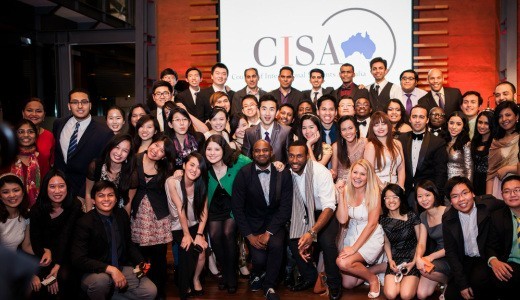By Meeta Chatterjee Padmanabhan
Once again, international students in Australia became the punching bag of the media in Degrees of Deception, featured in Four Corners on the 20th of April, 2015. The program claimed that its investigation “has unearthed alarming new evidence of a decline in academic standards at institutions around the country” The evidence that program has unearthed is, alarmingly, not new. The various media have, for at least a decade, raised the issue of international students in the context of funding and linked it to declining standards. Here is another example from 2006: “Funding cuts have forced universities to take in large numbers of fee-paying overseas students. They number about 240,000 or a quarter of the student body. Australia’s international student industry – which includes TAFE and school students – is worth $9.8 billion. But as hard and politically incorrect as it is to say, the problems are exacerbated by overseas student influx.” (Susskind, 23/11/2006)
Despite being a “hard and a politically incorrect” thing to say, the media have harped on it and linked the rise of plagiarism to “overseas student influx” for years now. International students who have come to Australian universities have been portrayed as rich guests who will eventually white ant the edifice of Australian higher education. They have been seen as “cash cows”[1] and in the media’s “regime of truth”, international students are identified as the “bogey” or problem for Australian higher education[2].
The program makes important points, but in a mean-spirited way. The anxieties of the academics on Degrees of Deception are real and understandable. English language proficiency does become a hurdle in learning and performing well at work. While it is true that education is not an industry and that calling a student “a client” goes against the grain of transmitting knowledge and learning, higher education is a revenue earner and like all types of funding, it is vulnerable to corruption and malpractices as the program pointed out citing an ICAC media release. Tertiary education is a hugely complex issue with multiple stakeholders. As Australia attempts to reinvent itself as a clever country and as tertiary education continues to be a major export, perhaps new questions need to be asked and in an even-handed manner.
Certainly, the conversation about international students is legitimate, but we should listen to their side of the story. Responding to the Four corners program, a spokesperson (Mr. Ch’ng) for the Council of International Students Australia, a body that consists of 422,324 members from 193 countries, commented: “A few bad apples and a small handful of concerned academics should not define the general reputation of international students. There are students who work genuinely hard by exercising due diligence in their studies so as to make the most of a huge financial investment and there are certainly full-time academics who can attest to the quality and success of international students who have gone on to demonstrate capability in the workplace”. International students in Australian universities, in most cases, do not expect leniency but expect to become linguistically competent in English and to graduate from their programs not just with the knowledge of their content subjects but also with the capacity to perform globally in academic and professional environments[3]. For every international student who can afford fast cars and a fancy lifestyle, there are many others who struggle to find jobs at the lowest levels to pay for their rent and food. While this is not very different from the experiences of our domestic students, what makes it harder for international students is English language proficiency. Alex Barthel rightly suggests that irrespective of the entry level of students, ongoing programs for internationals students who use English as an Additional Language are really crucial.
Tertiary education is a complex business in the 21st century. Discourses of globalisation and knowledge economies are pervasive. Calls to deepen and broaden relationships with Asia (as pointed out in the Australia in an Asian Century White Paper ) the aspiration to build a robust international education and the concern for standards seem to be mutually incompatible. However, as the demand for university education in Asian countries grows and Australian universities set out to connect with the rest of Asia, there is a steep learning curve ahead for all: international and domestic students, university administrators and academics, English language providers, agents offshore, monitoring bodies and a whole range of invisible players. For the media, there will be new challenges on how to represent debates in an even-handed manner in this dynamic area.
[1] Kell, P &Vogl, G 2008, ‘Perspectives on mobility, migration and well being of international students in the Asia-Pacific’, International Journal of Asia-Pacific Studies, vol. 4, no. 1, pp v-xvvii.
[2] Devos, A 2003, ‘Academic Standards, Internationalisation, and the Discursive Construction of “The International Student”, Higher Education Research and Development, vol. 22, no. 2, pp 155-166.
[3] McGowan, U 2005, ‘Does educational integrity mean teaching students not to ‘use their own words’, International Journal For Educational Integrity, vol. 1, no. 1, pp 4-24.


Thank you Meeta, for letting me know about this blog. You bring together and make important points about robust international of education and the continuing development of English language as part of studying as an EAL student. I’d probably add that native speakers of English also need to learn the language of their disciplines. – Ursula